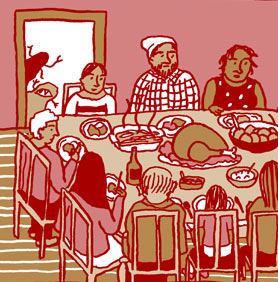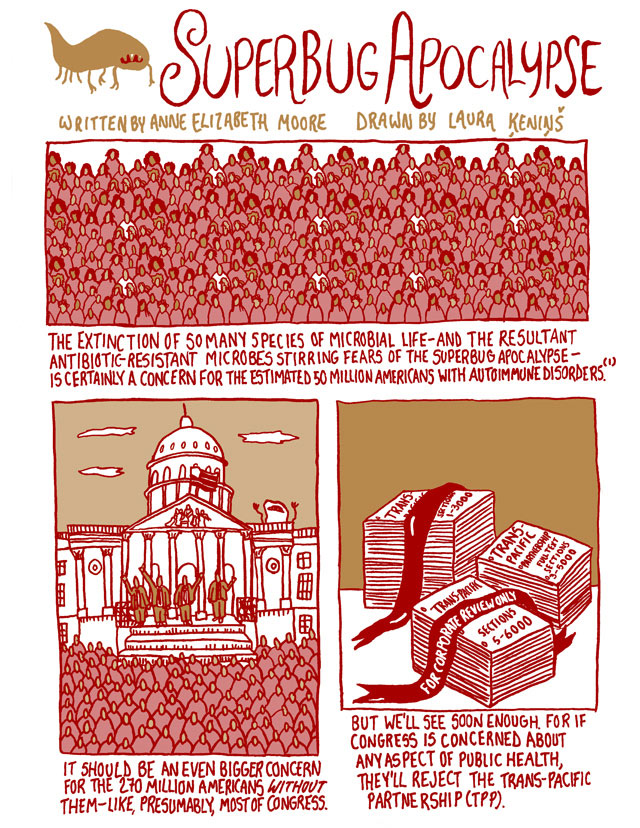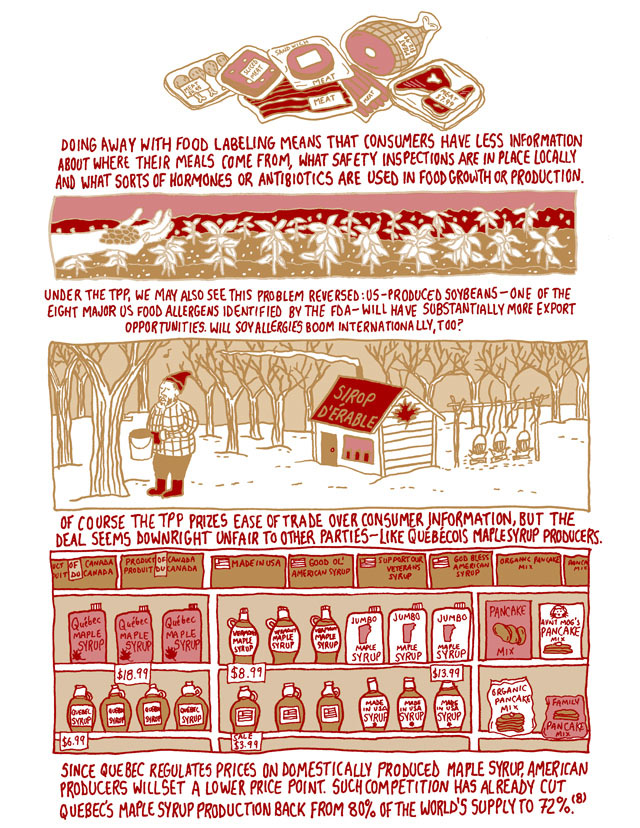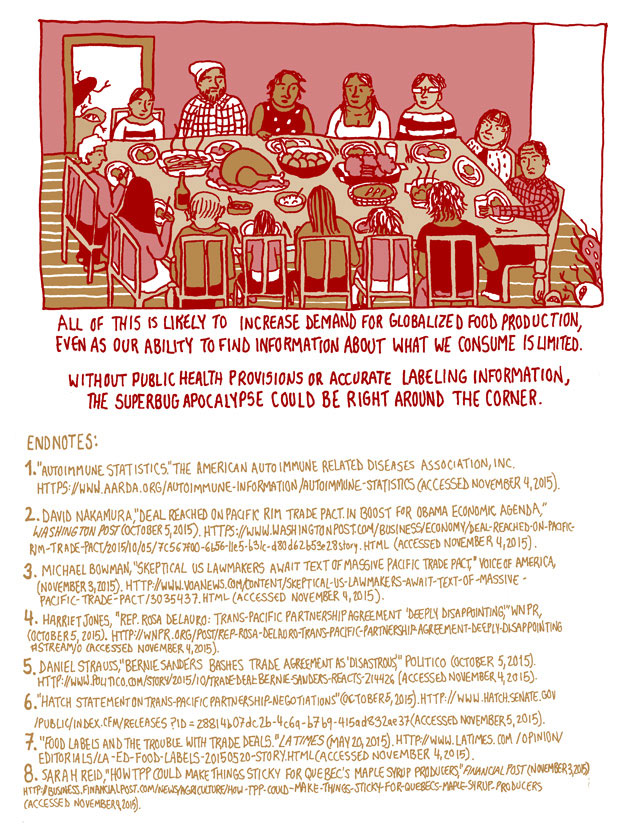Part of the Series
Ladydrawers
 “Superbug Apocalypse: How the Trans-Pacific Partnership Harms Public Health” is the latest in “Growing Season,” The Ladydrawers’ comics exploration of the links between public health, race and food policy, by Laura Ķeniņš and Anne Elizabeth Moore. In it, we consider the public health implications of food-labeling concerns raised by recent World Trade Organization (WTO) rulings and the recently released text of the Trans-Pacific Partnership (TPP). If you thought the only reason to be concerned was eight years of government secrecy surrounding the trade deal, its relation to the growing likelihood of antibacterial-resistant strains of bacteria from unchecked antibiotics in our food may give you nightmares.
“Superbug Apocalypse: How the Trans-Pacific Partnership Harms Public Health” is the latest in “Growing Season,” The Ladydrawers’ comics exploration of the links between public health, race and food policy, by Laura Ķeniņš and Anne Elizabeth Moore. In it, we consider the public health implications of food-labeling concerns raised by recent World Trade Organization (WTO) rulings and the recently released text of the Trans-Pacific Partnership (TPP). If you thought the only reason to be concerned was eight years of government secrecy surrounding the trade deal, its relation to the growing likelihood of antibacterial-resistant strains of bacteria from unchecked antibiotics in our food may give you nightmares.




Footnotes
1. “Autoimmune Statistics.” The American Autoimmune Related Diseases Association, Inc. https://www.aarda.org/autoimmune-information/autoimmune-statistics/ (Accessed November 4, 2015).
2. David Nakamura, “Deal reached on Pacific Rim trade pact in boost for Obama economic agenda,” The Washington Post (October 5, 2015). https://www.washingtonpost.com/business/economy/deal-reached-on-pacific-rim-trade-pact/2015/10/05/7c567f00-6b56-11e5-b31c-d80d62b53e28_story.html (Accessed November 4, 2015).
3. Michael Bowman, “Skeptical US Lawmakers Await Text of Massive Pacific Trade Pact,” Voice of America (November 3, 2015). https://www.voanews.com/content/skeptical-us-lawmakers-awit-text-of-massive-pacific-trade-pact/3035437.html (Accessed November 4, 2015).
4. Harriet Jones, “Rep. Rosa DeLauro: Trans-Pacific Partnership Agreement ‘Deeply Disappointing,'” WNPR (October 5, 2015). https://wnpr.org/post/rep-rosa-delauro-trans-pacific-partnership-agreement-deeply-disappointing#stream/0 (Accessed November 4, 2015).
5. Daniel Strauss, “Bernie Sanders bashes trade agreement as ‘disastrous,'” Politico (October 5, 2015). https://www.politico.com/story/2015/10/trade-deal-bernie-sanders-reacts-214426 (Accessed November 4, 2015).
6. “Hatch Statement on Trans-Pacific Partnership Negotiations” (October 5, 2015). https://www.hatch.senate.gov/public/index.cfm/releases?ID=28814b07-dc2b-4c6a-b7b9-415ad832ae37 (Accessed November 4, 2015).
7. “Food labels and the trouble with trade deals,” Los Angeles Times (May 20, 2015). https://www.latimes.com/opinion/editorials/la-ed-food-labels-20150520-story.html (Accessed November 4, 2015).
8. Sarah Reid, “How TPP could make things sticky for Quebec’s maple syrup producers,” Financial Post (November 3, 2015). https://business.financialpost.com/news/agriculture/how-tpp-could-make-things-sticky-for-quebecs-maple-syrup-producers (Accessed November 4, 2015).
A terrifying moment. We appeal for your support.
In the last weeks, we have witnessed an authoritarian assault on communities in Minnesota and across the nation.
The need for truthful, grassroots reporting is urgent at this cataclysmic historical moment. Yet, Trump-aligned billionaires and other allies have taken over many legacy media outlets — the culmination of a decades-long campaign to place control of the narrative into the hands of the political right.
We refuse to let Trump’s blatant propaganda machine go unchecked. Untethered to corporate ownership or advertisers, Truthout remains fearless in our reporting and our determination to use journalism as a tool for justice.
But we need your help just to fund our basic expenses. Over 80 percent of Truthout’s funding comes from small individual donations from our community of readers, and over a third of our total budget is supported by recurring monthly donors.
Truthout has launched a fundraiser to add 432 new monthly donors in the next 7 days. Whether you can make a small monthly donation or a larger one-time gift, Truthout only works with your support.